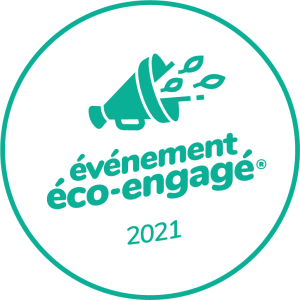Events become the first ambassadors of the ecological transition!
We accelerate the ecological transition of the event industry (festivals, sports competitions, events for professional audiences, etc.) We make the link between events and ecological transition.

Overview of the project

We offer a range of tools that all refer to the “eco-committed event reference framework”, which offers a concrete vision of what a “sustainable” event could be in terms of adaptation and resilience.
This reference framework is based on 10 issues: respect for the site, low resource use, sustainable travel, nutritional transition, an event for all, zero waste, health/safety, public participation, organisation for progress, etc.
One of the main tools is the certification of an event according to these standards. The certification allows an event to be distinguished at three levels: “initial”, “in transition” and “sustainable”. Above all, the certification offers a peer-to-peer evaluation system, i.e. between event organisers.
EACH ORGANISER CAN BECOME AN ASSESSOR, EACH ASSESSOR IS PUT IN A POSITION TO BECOME AN EXPERT IN THE ECOLOGICAL TRANSITION.
Other tools are available:
- a reference system for venues
- a benchmark for service providers
- a study day for local authorities
- a fresque du climat-type tool…
Create and promote tools to enable event organisers to enter the ecological transition E.g.: certification, awareness-raising tools, meetings, guides...
implementation
project still in progress
Already 34 events with certification and as many in the process of being certified.
- The framework is increasingly used by local authorities and organisers
- It is used as a basis for the work of accompanying organisations
ADEME, Pays de la Loire, Nantes Métropole, users
organisation
We accelerate the ecological transition of the event industry (festivals, sports competitions, events for professional audiences, etc.). We make the link between events and ecological transition
we address local authorities, unions, organisers, service providers and citizens.
The governance of the standard is multipartite via a committee of 20 participants: the label committee



